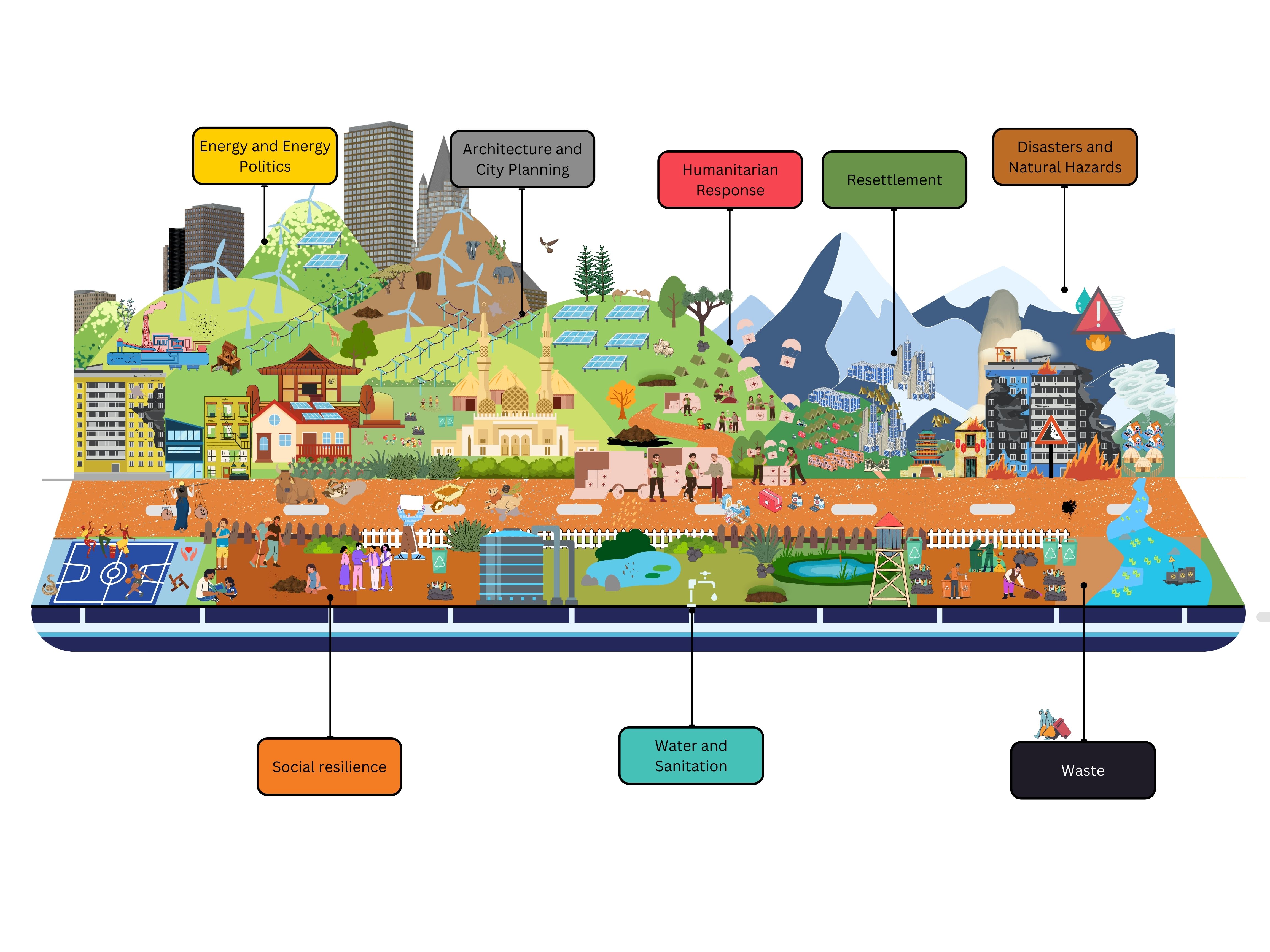WAT-E2060 - Sustainable Built Environment D, Lecture, 23.10.2023-11.12.2023
This course space end date is set to 11.12.2023 Search Courses: WAT-E2060
Topic outline
-

Welcome to WAT-E2060 Sustainable Built Environment!
- PERIOD II: 23.10 - 11.12.
- Mondays & Wednesdays at 9.00 - 12.00.
- Prerequisite: WAT-E3020 State of the world and development (unless you are a WAT programme student).
- All except two (remote) contact sessions will be held in Q201 (Väre).
- 5 ECTS = 135h.
Course overview
This is a multidisciplinary course with weekly changing themes and lecturers (see course schedule). The focus of the course is the global built environment with special attention on low- and middle-income areas. It involves lectures, several workshops, MiniWorkshop group tasks, and an individual portfolio assignment. See Sisu for additional information.
NOTE that 80% attendance on contact sessions is compulsory. If you miss more than three sessions, you will have to do compensatory assignments.
Contact
Should you have any questions, email the course coordinator Anni Juvakoski: anni.juvakoski@aalto.fi and Bhattarabhop "Best" Viriyaroj: bhattarabhop.viriyaroj@aalto.fi
Miro Board: SBE 2023
Weekly course work
Mondays @ 9.00 – 12.00Interactive lecture including a 30 min. mini-workshop task with peer group in the beginning of the session (lectures are attended in person, except for two remote lectures)
Wednesday @ 9.00 – 12.00Workshop (in person)
Rest of the week1) Reading assigned material to prepare for Monday’s mini-workshop task,
2) drafting and submitting a very light “take-home messages of the week“ task,
3) slowly drafting an individual portfolio task due at the end of the course
Individual task
In the individual assignment, you apply the learnings from the course to a case of your choosing. The format of the portfolio is free (e.g., text, video, presentation). The workload goal of the portfolio is equal to approximately 1 credit (27 h of work).
MiniWorkshop tasks
Every week there will be materials provided for the mini-workshop task (the week before). These will be in the form of videos or reading materials. Then each Monday, there will be a 30-minute mini-workshop task for your peer group to do based on those materials.
GradingThe grading criteria will be specified by the start of the course. Approximately 25% of the grade consists of peer-evaluation and 25% of MiniWorkshop tasks. The other 50% comes from the individual portfolio task.
-
Use the attached template to grade yourself and your peer group members on groupwork efforts.
Submit the filled template here by Friday 15.12.2023 at 23.59.
